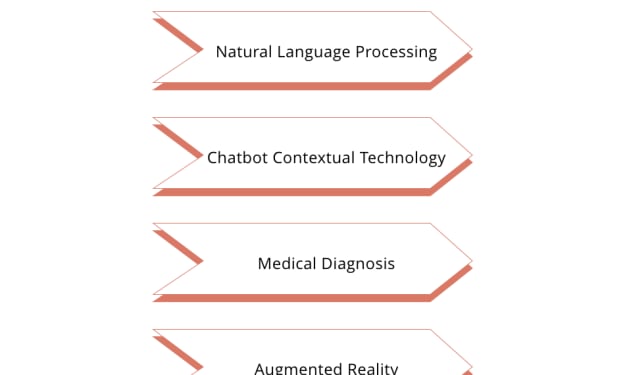Quantum computing is an emerging field that holds great promise for technological advancements across various industries. As this powerful computing paradigm continues to evolve, its potential impact on cryptocurrencies has become a topic of interest and concern. In this article, we will delve into the risks and benefits that quantum computing presents for cryptocurrencies and discuss strategies to mitigate potential vulnerabilities.

Risk to Cryptocurrencies
1. Breaking Current Cryptographic Algorithms
Many cryptocurrencies rely on cryptographic algorithms to secure transactions and protect users' funds. These algorithms are designed to be computationally difficult to solve on classical computers. However, quantum computers have the potential to exploit the principles of quantum mechanics to solve these mathematical problems much more efficiently. Consequently, the cryptographic algorithms that underpin cryptocurrencies could be compromised, leading to unauthorized access to wallets and theft of funds.
2. Compromising Cryptocurrency Wallets
Quantum computing's ability to break cryptographic algorithms could have severe implications for the security of cryptocurrency wallets. Wallets are essential digital repositories where users store their cryptocurrency holdings. If quantum computers can break the encryption protecting these wallets, malicious actors could gain unauthorized access and manipulate or steal funds. This poses a significant threat to the integrity and trustworthiness of cryptocurrencies.
3. Cheating the Mining Process
Cryptocurrency mining is the process through which new blocks are added to the blockchain, and new cryptocurrency is created. It involves solving complex mathematical problems that require significant computational power. However, quantum computers could potentially solve these problems much more quickly than classical computers, allowing attackers to cheat the mining process. This could lead to an unfair advantage, enabling them to generate more cryptocurrency than they are supposed to, disrupting the integrity and decentralization of the network.

Benefits to Cryptocurrencies
1. Faster and More Secure Transactions
Quantum computing, when harnessed appropriately, has the potential to revolutionize the speed and security of cryptocurrency transactions. With its immense computational power, quantum computers could be used to develop new cryptographic algorithms that are more secure and efficient. These algorithms can enhance the authentication, encryption, and verification processes, making transactions faster and less susceptible to malicious attacks.
2. Efficient Decentralized Applications (dApps)
Decentralized applications (dApps) are an integral part of the cryptocurrency ecosystem, offering various functionalities beyond simple transactions. Quantum computing can contribute to the development of quantum-resistant dApps that operate securely and efficiently. By leveraging quantum-resistant cryptographic algorithms and other advanced security measures, developers can ensure the robustness and integrity of decentralized applications. This paves the way for the creation of sophisticated, decentralized platforms with improved scalability and performance.

Mitigating Risks
To mitigate the risks posed by quantum computing to cryptocurrencies, developers and stakeholders can implement the following strategies:
1. Use Quantum-Resistant Cryptographic Algorithms
Cryptocurrency developers should explore and adopt quantum-resistant cryptographic algorithms. These algorithms are specifically designed to withstand attacks from quantum computers, ensuring the long-term security of cryptocurrencies. Ongoing research and collaborations within the cryptography community are actively producing promising quantum-resistant algorithms that can be implemented to safeguard cryptocurrencies from potential threats.
2. Upgrade the Mining Process
As quantum computers pose a risk to the mining process, cryptocurrency networks may need to consider upgrading their algorithms and protocols to make them more resistant to quantum attacks. This could involve transitioning to new consensus mechanisms or cryptographic algorithms that are less vulnerable to quantum computing power. By proactively adapting the mining process, cryptocurrencies can maintain their integrity and prevent potential disruptions.
3. Develop Quantum-Resistant Applications
To ensure the longevity and security of decentralized applications, developers should prioritize the development of quantum-resistant dApps. These applications should employ quantum-resistant cryptographic algorithms and follow best practices for secure coding and implementation. By integrating quantum-resistant measures from the early stages of development, developers can create resilient dApps that withstand potential quantum threats.
Conclusion
Quantum computing is a rapidly advancing field that presents both risks and benefits for cryptocurrencies. While the full extent of quantum computing's impact on cryptocurrencies is yet to be fully understood, proactive measures can be taken to mitigate potential vulnerabilities. By adopting quantum-resistant cryptographic algorithms, upgrading the mining process, and developing quantum-resistant applications, stakeholders can navigate the future of cryptocurrencies with confidence. As the field of quantum computing continues to evolve, collaboration and innovation within the cryptocurrency community will play a crucial role in maintaining the security and resilience of digital currencies.





Comments
There are no comments for this story
Be the first to respond and start the conversation.